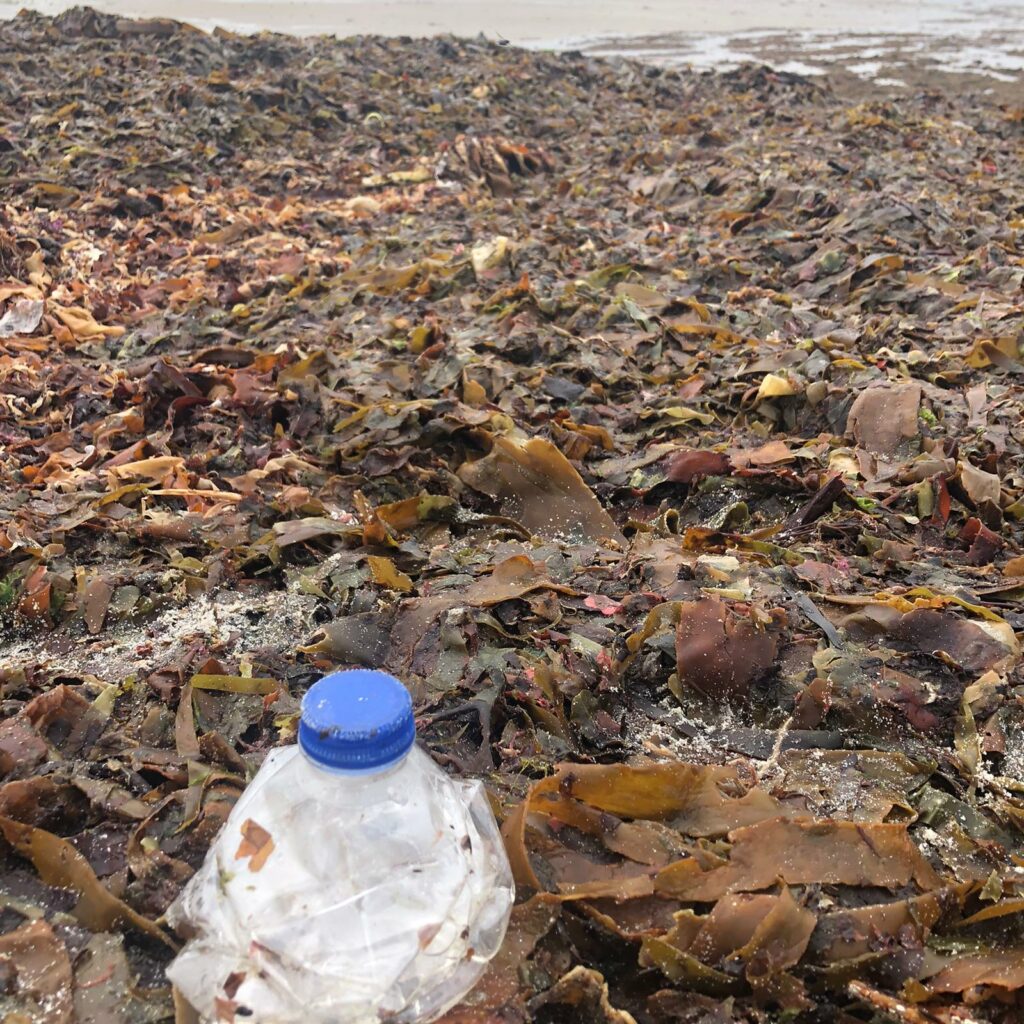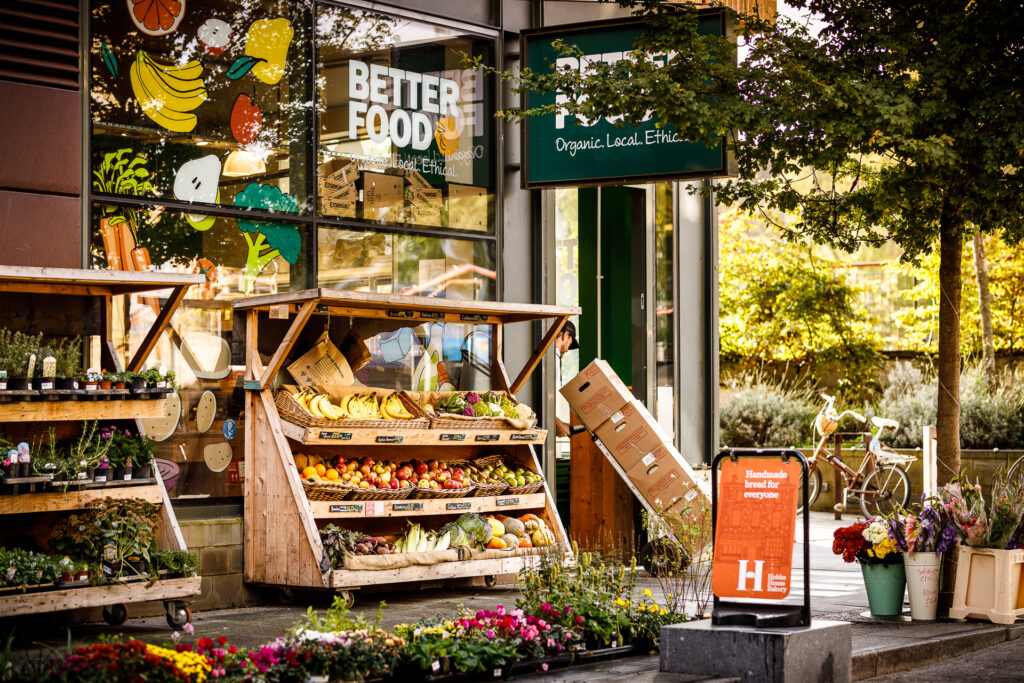The best BBQ Delivery Boxes in the UK from small sustainable British Farms
When talking about “plastic free” there are two things to note. The first is all plastics are made from fossil fuels.
The second is the fossil fuel industry is the primary cause of the climate crisis. By a long way. In 2018 a staggering 89% of global CO2 emissions came from fossil fuels and industry, according to The Intergovernmental Panel on Climate Change.
And yet…
In the face of all the grand plastic-free promises, the UK is still generating more plastic waste per person than any other country except the USA.
That’s the conclusion of Trashed: How the UK is still dumping plastic waste on the rest of the world report, released this year.
It reveals that in 2018, the UK generated an estimated 5.2 million tonnes of plastic waste. That’s enough plastic to fill Wembley Stadium six times over. We recycle less than 10% of this. We incinerate the rest (46%), export it (19%) and send it to landfill (17%).
And there aren’t any signs of it slowing down. In fact, global plastic production is expected to almost quadruple by 2050.

PLASTIC FOOD: THE PROBLEM
So, it’s perhaps unsurprising that despite introducing the 5p plastic bag charge in October 2015, the top 10 UK supermarkets actually increased their plastic footprints by 1.2% between 2017 and 2019, from 886,000 tonnes to nearly 897,000 tonnes, according to analysis by Greenpeace and the Environmental Investigation Agency (EIA).
Single-use plastics are the biggest issue. Around 50% of plastics produced are single-use. Our addiction to convenience is flowing into our rivers (which lead straight to the sea), reveals the Earth Watch’s Plastic Rivers report, which calculated that 71% of litter found in UK rivers was plastic.
The biggest culprits are plastic bottles, food wrappers, cigarette butts and food takeaway containers.
But, of course, these aren’t really the biggest culprits.
Officially, the seven biggest culprits are the well-known FMCG companies Coca-Cola Company, PepsiCo, Nestlé, Unilever, Mars, Inc., Mondelez International and Procter & Gamble, according to the Brand Audit Report 2020.
The very same Coca-Cola Company who is on a “journey towards a World Without Waste”; Unilever who have their “Sustainable Living Plan”; and Procter & Gamble who talk about their “Ambition 2030” – you see where we’re going with this…
So, what needs to happen?

PLASTIC FREE FOOD: THE SOLUTIONS
“The UK needs to drastically cut the amount of plastic produced in the first place. Reducing single-use plastic by 50% would not only allow the UK to end waste exports, but would also mean less plastic going into incineration and landfill. The government must mandate a 50% reduction in single-use plastic by 2025 – and supermarkets and major brands must deliver it,” concludes the Trashed report.
Also, forget compostable or biodegradable plastics. The technology just isn’t there to make this a reality yet. In the meantime it encourages us to continue with single-use items such as “compostable” coffee cups. This means we continue to harm the environment and marine life. But, we feel better about it, which is a troubling trajectory.
“Our small changes really do make a difference, together we can show big brands, business and government that we need to see action on plastics and reuse is the solution,” says Jo Morley, head of campaigns for City to Sea, an environmental charity focused on plastic pollution.
They suggest 12 changes we can all make when it comes to food. Essentially, this is the mindset we all need:
Begin with Refuse, Reduce, Reuse and Refill and only then when you’ve exhausted those options opt for Recycling.
Finally, where – and only where – reusables aren’t an option, choose materials that can be recycled, like card, paper, aluminium and glass.
Oh… and send the odd-tweet/email to make it known to retailers and brands that you expect them to change. This is a demand on your time, so is perhaps the hardest action. But, it has the potential to make the biggest difference of all.

PLASTIC FASHION: THE PROBLEMS
Synthetic fibres – polyester, nylon, acrylic and elastane (which are all produced from oil and gas) – represent almost 70% of all materials used in textiles and are expected to reach nearly 75% by 2030, reveals the latest Changing Markets Foundation report.
The production of synthetic fibres already requires more oil than the annual consumption of Spain.
Despite all the fashion industry’s sustainability promises – all the 2030 pledges – not one company listed in their Synthetics Anonymous report has made a clear commitment to phase out the use of synthetic fibres.
And, sadly, ‘recycled’ polyester – made from PET bottles or Ocean Plastics – is not the silver bullet it appears to be. This is because current volumes of extraction from the ocean are minuscule. Plus, recycling plastic bottles into plastic bottles can be done multiple times, but once you recycle them into fibre they weaken and can’t be recycled again – and so end up in landfill.
At end of life, most garments end up in landfills or incinerators; fewer than 1% of items of clothing are recycled to produce new clothes. Globally, roughly one garbage truck of clothes ends up in landfill every second.
Ellen MacArthur Foundation (2017)
This means recycled plastic does little to stop the flow of plastics into the environment and because of false recycling (or ‘circularity’ claims) can even justify the continuous use of plastic.
Then there’s the issue of microfibres. A 2021 study by the California Ocean Science Trust reports that microfibres from textiles are among the most common microplastic materials found in the marine environment.
Yet, 85% of brands report that the principal way they plan to curb the impacts of fossil fashion and embrace more ‘sustainable’ synthetics is to switch to recycled plastics.
Hmmmm.
If we know the issues, the brands know them, and there’s little doubt that this direction of travel amounts to greenwashing.
In fact, using the UK Competition and Markets Authority’s new guidelines on green claims as a baseline, the Synthetics Anonymous report finds that 96% of H&M’s claims, 89% of ASOS’s and 88% of M&S’s flout the guidelines in some way.
H&M’s Conscious Collection actually contains a higher percentage of synthetics than its main collection (72% versus 61%, respectively).

PLASTIC FREE FASHION: THE SOLUTIONS
The report concludes that it’s clear we need legislation – brands have proved they cannot be trusted to regulate themselves.
But, each of us can also make better choices.
The global fashion industry is now a $3.3 trillion industry. Clothing sales are growing faster than the world’s population or GDP.
The report states:
“It continues to grow faster, under a business model propelled by excessive consumption and overproduction, while generating huge profits built on the exploitation of cheap labour and environmental degradation.”
As such, it makes three recommendations for consumers:
1. Refrain from compulsive shopping. Buy only what you need, shop second-hand and buy for maximum durability. Also, seek to repair, reuse and swap items where possible.
2. Buy only from brands that have made clear commitments to transparency in their supply chains, to sustainable sourcing and production of all their materials and garments, and which have strong climate commitments, including a clear plan to phase out their dependence on fossil fuel-based fibres.
3. Raise awareness of the problems with fast fashion. Use your voice – for example, through social media or signing petitions – to highlight issues such as greenwash.
Written with support from the Organic Trade Board.
Main image: Changing Markets Foundation report Synthetics Anonymous


